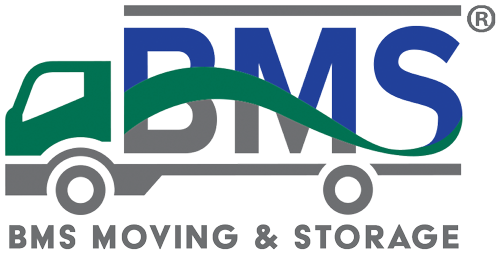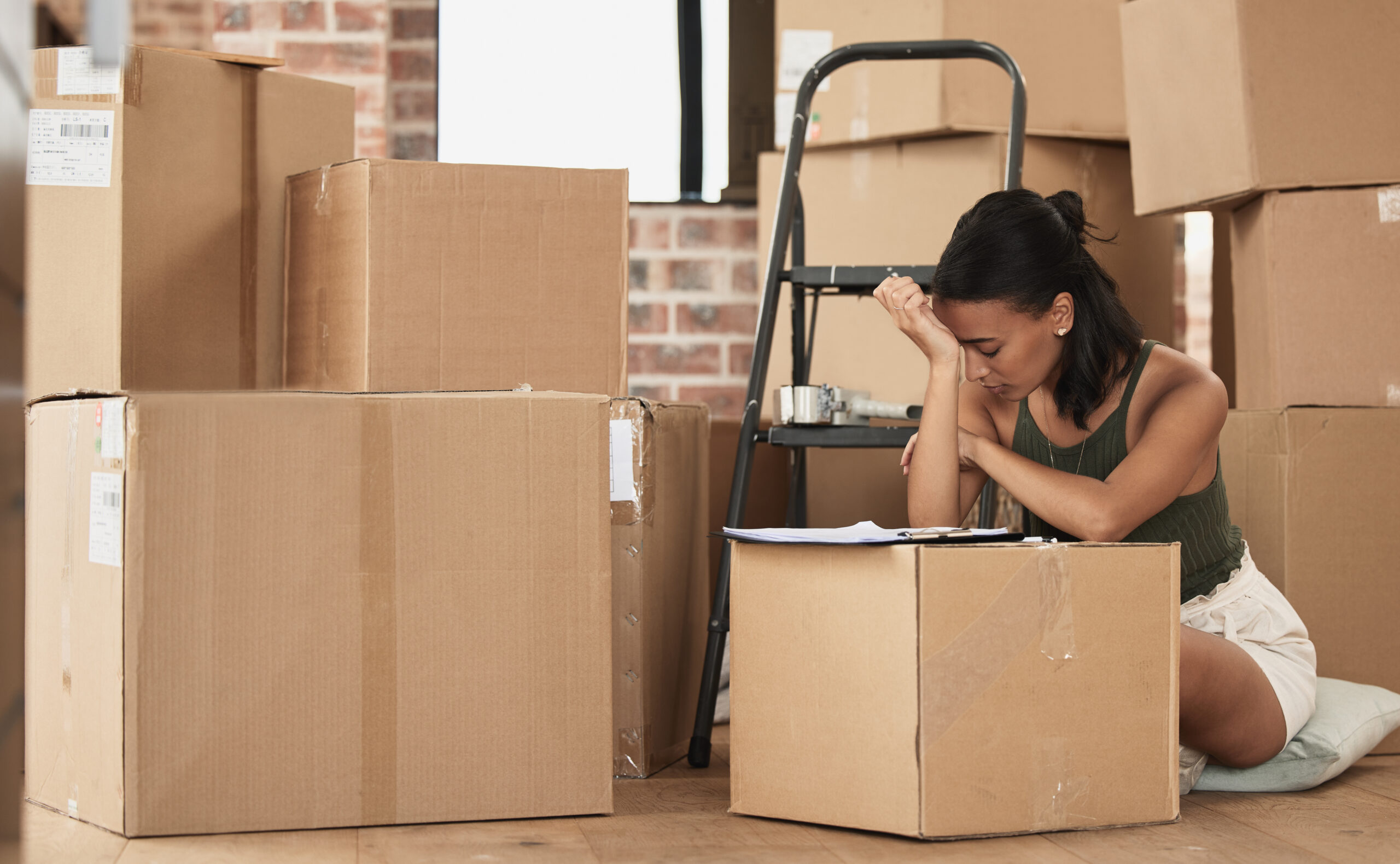TL;DR: Moving is so stressful because it disrupts your routines, stirs up emotions about leaving home, forces constant decisions, and adds money and time pressure on top of physical exhaustion. You can make it easier by starting early, breaking tasks into a simple timeline, getting help from friends or professionals, and protecting your sleep, meals, and mental health during the process.
Moving consistently ranks as one of life’s most stressful events, right up there with divorce, job loss, and major health challenges. But why exactly does relocating create such anxiety, and more importantly, what can you do to make your next move smoother?
In this article, you’ll learn why moving takes such an emotional and mental toll, how finances and timing can add pressure, and concrete steps you can take before, during, and after moving day to reduce stress. Let’s dive into the psychology behind moving stress and explore practical solutions to make your transition easier.
Understanding the Emotional Toll of Moving
Our homes are more than just physical spaces. They’re the backdrop to our daily lives, the keeper of our memories, and our sanctuary from the world. When we move, we’re uprooting our entire sense of place and routine. This emotional attachment to our living spaces makes moving particularly challenging.
The fear of the unknown plays a significant role in moving-related stress. Even if you’re excited about your new destination, there’s always uncertainty lurking beneath the surface. Will you like your new neighborhood? Will your furniture fit in the new space? Will you make friends in your new community? These questions can create a constant undercurrent of anxiety throughout the moving process.
The Physical and Mental Demands of Relocation
Moving is both a physical and mental marathon. The sheer volume of tasks involved can be overwhelming. From sorting through years of accumulated possessions to lifting heavy boxes and furniture, the physical demands alone can leave you exhausted. Add to that the mental strain of organizing, planning, and making countless decisions, and it’s no wonder many people find moving overwhelming.
Decision fatigue is a real phenomenon during moves. Every item in your home requires a decision: keep, donate, sell, or trash. These choices might seem simple in isolation, but when you’re making hundreds of them in succession, it becomes mentally draining. This constant decision-making can lead to stress and anxiety, making the moving process even more challenging.
Financial Pressures and Time Constraints
The financial aspect of moving often adds another layer of stress to an already challenging situation. There are numerous hidden expenses that can catch you off guard. Security deposits, utility transfers, new furniture, and appliances can quickly add up, creating financial pressure during an already stressful time.
Time constraints can make everything feel more urgent and overwhelming. Whether you’re dealing with a lease expiration, a house closing date, or a job start date, these deadlines can create intense pressure to complete your move within a specific timeframe. This pressure can make every delay feel catastrophic and every decision more stressful.
The Impact on Daily Life and Relationships
Moving disrupts every aspect of your daily routine. Simple tasks like making coffee in the morning or finding your favorite sweater become complicated when your belongings are packed in boxes. This disruption of routine can be particularly stressful because it removes the comfort and predictability we rely on to navigate our daily lives.
Relationships can also be strained during a move. Family members may disagree about moving decisions, friends may feel abandoned, and children may struggle with the idea of leaving their familiar environment. These emotional dynamics can add significant stress to the moving process.

Professional Solutions for a Smoother Move
Working with professional movers like BMS Moving & Storage can significantly reduce the stress of moving. Professional movers bring expertise, proper equipment, and systematic approaches that can transform a chaotic move into a well-organized operation. They handle the heavy lifting, protect your belongings, and manage the logistics, allowing you to focus on other aspects of your transition.
Professional movers understand the complexities of different types of moves. Whether you’re moving from an apartment with strict elevator schedules or a house with valuable antiques, they have the experience to handle these challenges effectively. This expertise can provide peace of mind during what would otherwise be a highly stressful time.
Creating a Strategic Moving Timeline
A well-planned timeline is crucial for reducing moving stress. Start eight weeks before your move by sorting through your belongings and deciding what to keep. This early start gives you time to sell or donate items you won’t be taking with you, reducing the volume of items you’ll need to move.
Six weeks before moving, start collecting packing supplies and begin packing non-essential items. This gradual approach prevents the last-minute rush that often leads to stress and disorganization. As you get closer to moving day, pack room by room, leaving essential items for last.
The Importance of Self-Care During Your Move
During the chaos of moving, it’s crucial to maintain basic self-care practices. Regular meals, adequate sleep, and some form of physical activity can help manage stress levels and maintain your energy. Taking breaks when needed isn’t a luxury – it’s necessary for maintaining the stamina required for a successful move.
Stay hydrated and keep healthy snacks easily accessible during packing and moving days. The physical demands of moving can be significant, and maintaining your energy levels is important for both your physical and mental well-being.
Building a Support System
Don’t try to handle everything alone. Accept help from family and friends who offer assistance. Whether it’s watching your children during packing days or helping with the actual move, having support can make a significant difference in your stress levels.
Consider hiring additional professional help beyond movers. Professional organizers can help you sort and pack efficiently, while cleaning services can handle the final cleanup of your old home or the initial cleaning of your new one.
Making Your New House Feel Like Home
The stress of moving doesn’t end when the last box is unloaded. Taking time to organize and settle into your new space is crucial for feeling at home. Start with essential rooms like the kitchen and bathroom, making them functional as quickly as possible. This helps establish a sense of normalcy in your new environment.
Creating familiar routines in your new space can help reduce post-move stress. Set up a comfortable area for morning coffee, arrange your bedroom for good sleep, and gradually explore your new neighborhood to begin feeling connected to your new community.
Why BMS Makes a Difference
At BMS Moving & Storage, we understand the stress of moving and work to make your transition as smooth as possible. Our experienced teams handle everything from proper packing techniques to efficient loading and unloading. We bring the right equipment, protective materials, and expertise to ensure your belongings arrive safely at your new home.
Our comprehensive services can be customized to meet your specific needs, whether you’re moving locally or long-distance. From providing packing supplies to offering storage solutions, we’re here to support you throughout your moving journey.
Embrace Your New Beginning
While moving will always involve some stress, viewing it as the beginning of a new chapter can help shift your perspective. With proper planning, support from professionals like BMS Moving & Storage, and attention to self-care, you can navigate your move successfully and begin enjoying your new home sooner.
Every move is unique, and it’s okay to feel stressed about the process. What matters is having the right support and strategies in place to manage that stress effectively. Whether you’re moving across town or across the country, BMS Moving & Storage is here to help make your transition smoother and less stressful.
Ready to start planning your less stressful move? Contact BMS Moving & Storage today for a free quote and let our experienced team help you create a customized moving plan that addresses your specific needs and concerns.
Sources:
BBC – Is moving home one of life’s most stressful events?
NLM – Decision fatigue: less is more when making choices with patients




